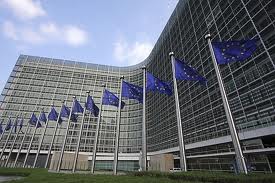Education and Science, EU – Baltic States, Good for Business
International Internet Magazine. Baltic States news & analytics
Thursday, 25.04.2024, 04:23
Opening EU-funded research to all helps Baltic development
 Print version
Print version |
|---|
The EU institutions are going to prioritize the “open system” of scientific research because it can deliver more for various users and for the wider economy in Europe. For example when the Human Genome Project results were made accessible in Europe, the Commissioner argued, it leveraged a €3 billion research investment into around €500 billion in economic activity.
“We are making EU-funded research open to all; we are urging member states to do likewise, so that all nationally funded research will be available to the wider public. Our strong political message is that researchers deserve support to make their results available to all, for the benefit of all”, said Neelie Kroes, Vice-President of the European Commission responsible for the Digital Agenda in a statement at a press conference on “Open Access to Scientific Information”.
Reference: Press Release, SPEECH/12/560 Date: 17/07/2012.
Besides, open access to scientific information will lead to better and faster research results. Innovation is an over-used word. We talk a lot about it, but don’t do enough of it. One reason for that is that we put obstacles in the way of innovation - like locking up information that is critical for innovators, for entrepreneurs. New initiative would allow any start-ups and/or SMEs that can’t afford scientific journals, could help those businesses get their ideas to market 2 years earlier.
Open access to research
Commission’s proposal means at the same time that researchers can choose to provide open access in two ways: First, by paying publication costs upfront to the publisher and making the articles immediately accessible – known as 'Gold' Open Access. Second, by putting their articles into open access repositories online; publishers sometime impose "embargo periods", i.e. delays before such self-deposited articles can become openly accessible. Commission’s policy means that delays of up to 6 months are acceptable for all subjects, with an except for social sciences and humanities who may delay by 12 months. This is known as “green open access”.
Digital ERA: good for business
Business in the EU can utilize “raw research data” in new ways. For example, Alzheimers’ researchers recently pooled genetic data and discovered five new genes and important evidence about the disease. Therefore, researchers from different research fields and regions can cross-check and combine data sets.
Commission intends to start implementing a strong open access policy for data as well, excluding, however, projects for which legitimate privacy or commercial concerns would rise.
The EU has already made major progress in building the European Research Area over the last two decades; the main idea is the so-called the Digital ERA. The basis of the Digital ERA is high-speed network connections – up into the Gigabit per second rage - between all universities and research institutes.
Open access to data needs infrastructures to host and serve the data – and it needs infrastructures to connect to and transport the data. Hence the Commission is already busy in building and extending both. The EU spends hundreds of billions of euros on research in Europe; it needs to make sure the results can have the largest possible impact. As in so many other fields, the internet is the key to this progress.
As one of the biggest players in this field, the EU is placing European science as a global leader: and giving taxpayers the “value for money” they deserve, concluded the Commissioner.
From 2014, the Commission plans to award grants of about €80 bn through its Horizon 2020 program making support for R&D most influential academic research in the world. In this way the EU is aimed at creating a single market for offering grants and fostering innovation in Europe.








 «The Baltic Course» Is Sold and Stays in Business!
«The Baltic Course» Is Sold and Stays in Business!

